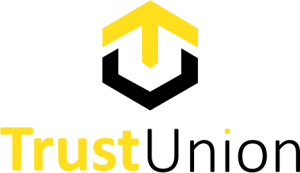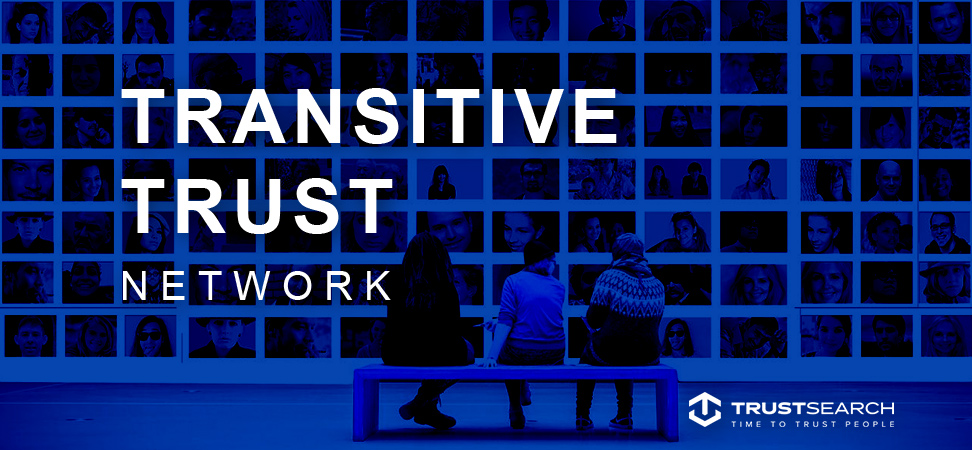
A Journey With TrustUnion: Real-World Use Cases
Virtually all markets rely on trust at a fundamental level. Even basic cash transactions for goods and services rely on trust — consumers trust that retailers and sellers are trustworthy enough to offer goods that meet quality standards. The growing digital sharing economy is far more dependent on trust than traditional markets, and allows users to play the role of both service provider and consumer at the same time on a peer-to-peer basis.
The sharing economy is highly disruptive but relies on a centralized, slow-moving trust management system that prevents individuals from managing or accessing their own trust data. TrustUnion is building the first truly decentralized trust economy by bringing trust onto the blockchain in order to offer “trust as a service.” By leveraging the immutable and transparent nature of distributed ledger technology, TrustUnion is quantifying interpersonal trust and bringing it on-chain, reducing the cost of building trust on a global scale.
What is the Sharing Economy?
The sharing economy has transformed the way individuals interact with one another and is growing rapidly. Over $23 billion in investor capital has been directed toward the sharing economy since 2010, catalyzing an explosion of new ride sharing, apartment sharing, delivery, and task sharing apps and platforms.
The sharing economy is relatively simple to define — ultimately, the sharing economy is an evolving economic principle: mutual parties are able to share value from under-utilized skill sets or assets. This principle has resulted in the widespread disruption of many industries — in New York City, for example, the total number of Uber cars is more than three times larger than the fleet of NYC yellow taxis. Popular property sharing platform Airbnb is currently worth over $31 billion — which is equivalent to global hotel giant Marriott International subsequent to its acquisition of Starwood Hotels and Resorts Worldwide.
While the sharing economy enjoys explosive growth, there are a number of problems with the sharing economy model that present serious issues. The biggest issue within the sharing economy today is trust — while sharing economy participants enjoy the convenience, variation, and quality of service offered by the sharing economy, the semi-decentralized manner in which it facilitates peer-to-peer transactions between strangers raises concerns.

The Sharing Economy Trust Problem
Traditional service businesses such as hotels and car hire companies deliver an intrinsic sense of trust and authority. Trust in the traditional hire economy places the focus of trust on the purchaser, rather than the service provider. In the sharing economy, however, all participants must trust each other, and thus must rely on the platforms that facilitate the sharing economy to ensure others are trustworthy.
In the current sharing economy paradigm, sharing economy platforms such as Airbnb and Uber use a wide variety of techniques to ensure trust within their respective ecosystem. Background checks, video interviews, ID verification, address checks, and credit checks are all used to establish a baseline of trust between individual users and the platform provider which, in turn, delivers trust to other users on their behalf.
The current generation of sharing economy platforms establish a “decentralized” economy but are, from a functional perspective, centralized — users are identified and moderated through procedural, centralized systems. Rating or reputation systems play an important role in this paradigm — Uber, for example, manages trust by allowing users to “rate” each other with a five-star rating in order to establish a trust rating system.
Research performed by NYU economist John Horton, however, demonstrates that this reputation management system is susceptible to “relevancy decay,” which eventually renders the mechanism useless — anything less than a five-star rating is considered “bad” in the Uber ecosystem.
Ultimately, sharing economy users rely on centralized, “trusted” third parties in order to ensure that users can be trusted, thus relying on the standards established and employed by disparate sharing economy platforms. Sharing economy apps are also wholly separate entities — reputation and trust are not transferable between Uber and Lyft or DidiChuxing and Grab, for example.
What Does TrustUnion Do?
The core concept of TrustUnion aims to address the problem of trust not only in the sharing economy but in the digital world at large. The TrustUnion system is designed to replicate real-world trust in a decentralized manner, creating reliable digital trust free from reliance on centralized third parties.
In the current market paradigm, both service providers and consumers must invest a significant amount of time and capital in order to develop a trustworthy profile. TrustUnion aims to “digitize” trust by leveraging the inherently transparent, immutable, and “trustless” nature of blockchain technology. TrustUnion creates a tamper-proof record of economic interactions on a user level that can be viewed by both service providers and users, creating an immutable digital profile that represents the “trustworthiness” of a user.
TrustUnion, however, is interoperable — rather than create trust within a single platform or ecosystem, TrustUnion creates a transferable, decentralized digital trust identity that makes it possible for users to quickly and easily assess the trustworthiness of others. By using TrustUnion users can assess whether they can confidently transact with others, whether buying or selling goods or services, renting equipment, or any other transaction that involves a reliance on trust.
TrustUnion presents trust information via a range of tools for digital marketplaces that will include web and mobile apps in order to deliver “trust as a service.” While the technology behind the TrustUnion platform is relatively complex, the core concept is simple — TrustUnion creates a reliable, decentralized “trust score” for every user, across all platforms.
How does TrustUnion integrate into daily life, though?

A Journey With TrustUnion
In order to understand how TrustUnion works in a practical sense, let’s take a look at a day in the life of a sharing economy user — let’s call him “James.” As a frequent sharing economy user, James relies heavily on peer-to-peer platforms such as Uber, Airbnb, and Upwork, and maintains a TrustUnion profile that collects the various trust information from the disparate sharing economy platforms he uses.
As a freelancer, James works via both Upwork and Fiverr, the two largest peer-to-peer job markets. Every morning, James wakes up and checks Upwork and Fiverr for tasks relevant to his profession. In the morning of James’ typical sharing economy day, James discovers a position advertised on Upwork that, while offering attractive remuneration, has been posted by a new Upwork user that lacks any feedback or trust information on the Upwork platform.
The job poster, however, does maintain a TrustUnion TrustScore. As a multi-platform, globalized rating system based on both objective and subjective feedback, the TrustScore of an individual user allows TrustUnion members to instantly access definitive and accurate trust information about other members. While the job posted may be attractive, the lack of trust data on the Upwork platform would likely have resulted in James passing over the posting in favor of a posting created by a user with more comprehensive feedback.
Communicating with the job poster, however, provides James with the poster’s TrustScore, which reveals an extensive positive trust history on Freelancer.com, another large-scale online freelancing platform. Satisfied with the trust credentials of the job poster provided by TrustUnion, James negotiates an attractive rate for the job and begins his day with a new gig that he would have otherwise ignored — TrustUnion’s Global TrustScore changes risk to opportunity.
In addition to working as an online freelancer, James is also an avid online shopper. Having just moved into a new apartment, James shops online for furniture in the local area. James identifies a great eBay deal on an almost complete set of furniture that meets his needs, but there are two problems — the furniture is on the other side of town, and completely disassembled. James doesn’t possess a vehicle, nor does he own any tools.
The first problem is quickly solved by firing up Dolly, a small but rapidly-growing furniture moving and delivery platform. James quickly connects to a helper working on Dolly that is able to shift the furniture from the eBay seller’s house to his right away but isn’t sure about engaging a total stranger to move furniture he’s paid for online from the house of a seller he’s never met to his. TrustUnion, however, provides the solution to the dilemma.
Both the eBay seller and the Dolly helper maintain TrustUnion profiles, which allows James to check the trustworthiness of both parties. Satisfied with the trustworthiness of both the helper and the eBay seller, James purchases the furniture via eBay and engages the Dolly driver to bring the furniture to him. After a short time, the Dolly driver arrives and unloads the furniture for James. Now, James is left with a pile of disassembled furniture, but no way to assemble them.
TaskRabbit provides James with the ideal solution to the problem. The TaskRabbit platform allows users to choose from hundreds of thousands of “taskers” that are able to assist with, amongst other tasks, furniture assembly. Taskers that work on the TaskRabbit platform are vetted by the TaskRabbit. James finds a tasker in his local area that has the tools necessary to put his furniture together. Unsure of whether he should allow a stranger into his home in order to assemble furniture, James checks the TrustUnion profile of the prospective tasker.
One of the most interesting applications of the TrustUnion platform is the way in which individuals using the network interact with one another. TrustUnion works with trusted marketplaces to observe the behavior of individuals and collects this data in order to establish an individualized TrustScore for each user. TrustUnion members are able to network with one another and “endorse” other users with direct connections.
These direct connections contribute toward the TrustScore of a user, but are limited — each user can only make a limited amount of direct connections over the lifetime of their account. Importantly, users that make direct connections with other users become liable for the actions of those they connect with. The resulting organic growth of highly trusted members allows users like James to quickly and easily see who has endorsed the TrustUnion members he’s interacting with and assess their trustworthiness.
Delivering Interoperable Trust
TrustUnion makes it possible for users to quickly assess the trustworthiness of others without relying on centralized, siloed third-party trust systems. The TrustUnion TrustScore, however, delivers interoperable trust by collecting user data across multiple platforms and using it to create an accurate top-level trust assessment of each user.
By integrating with existing sharing economy platforms, TrustUnion will make it possible for sharing economy users to streamline the way they move across sharing economy platforms and take their digital trust identity with them. Let’s say our sharing economy user James, after assembling his furniture, is off on a holiday to Southeast Asia. Now, while Uber is the best platform for ridesharing in the United States, it’s not so popular in Southeast Asian countries. In countries like Thailand —James’s destination — Grab, another ride-sharing/transport app, reigns supreme.
James can Uber to his local airport in order to catch his flight with no issues by relying on his Uber trust rating, but when he arrives in a new country in which alternative platforms are standard, he’s faced with the dilemma of creating a new trust profile on the local platform of choice for the duration of his stay. Depending on the app used, this can cause higher fees for transportation or delays in connecting with a driver.
TrustUnion solves this problem by allowing James to leverage the trust established with the platforms he uses on a regular basis in order to rapidly establish a new trust profile on the new platform. As TrustScore becomes integrated into more digital marketplaces, the ways in which the trust provided by TrustUnion can be used expands.
Let’s say that James, subsequent to landing after a long flight, decides to use his TrustScore to establish a trust profile with a local ride-sharing app and heads to a local restaurant. After ordering, James realizes that he’s inadvertently left his wallet back at his hotel. Pur sharing economy participant is once again confronted with another trust dilemma — how can the restaurant trust that he’ll return with his wallet to pay without any assurance? Checking with the staff, James learns that the restaurant also maintains a TrustScore. After showing his TrustScore to the restaurant, the staff is satisfied that James is a trustworthy character, and allows him to shoot back to his hotel in order to grab his wallet.
It’s also possible to use TrusUnion and TrustScore in transactions that are outside of the sharing economy. During James’ holiday, he discovers a local artisanal merchant that offers unique products that aren’t available in his home country. The seller’s website, however, is not in James’ native language. With TrustScore, James doesn’t need to read the local language — all he needs is a price and a photo. Using TrustScore and one-click purchases, James can have the product delivered to his home address registered on the TrustUnion application. In the same way, James can use TrustScore to avoid common tourist scams. If he’s feeling uncomfortable about the price or services offered at a business in a country in which he doesn’t speak the local language, James can use TrustUnion and TrustScore to assess the trustworthiness of anybody offering him products and services — in both the digital and “real” world.
If James were to establish separate accounts on each of the sharing economy platforms and apps he used throughout his day, he’d be forced to complete separate identity and KYC (Know Your Customer) checks on each. This repetitive process that would involve sending extensive documentation such as passport scans and proof of address data to each platform. TrustUnion, however, creates a single tamper-proof account that allows sharing economy participants to use any platform immediately without wasting time on redundant profile checks and administrative burdens. In the digital economy, your TrustScore becomes a tool of confidence far more powerful than your identity.
The Future of TrustUnion
TrustScore allows users to take their trust profile with them across multiple platforms and markets — but it’s not the only application of TrustUnion. In addition to providing trust as a service, TrustUnion also delivers a range of value-added services that include cryptocurrency functionality, escrow services, governance mechanisms, and identity verification.
The future of TrustUnion’s identity verification services will make it possible for users to transport their identities from one platform to another alongside their trust profile. Blockchain-based identity management allows users to make their identity data self-sovereign, keeping identity data management in the hands of individuals instead of big data corporations.
By bringing measurable, reliable, accurate trust management into the sharing economy and beyond, TrustUnion is digitizing real-life trust, basing trustworthiness on economic history and personal connections instead of personal identity data in a manner that allows individuals to grow their own trust capital.


